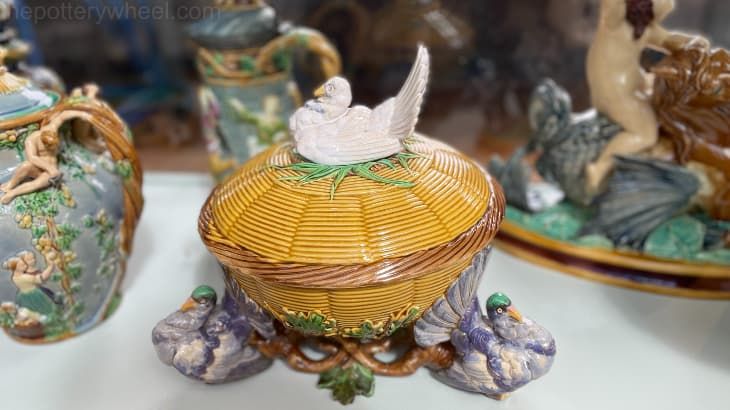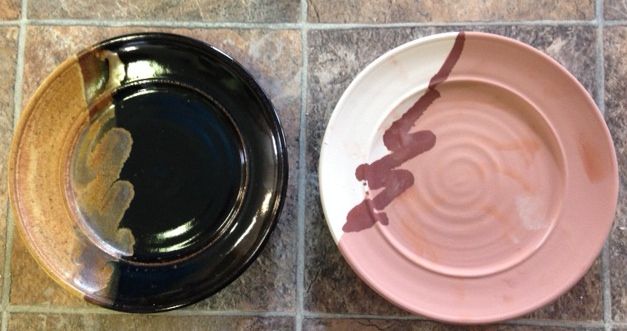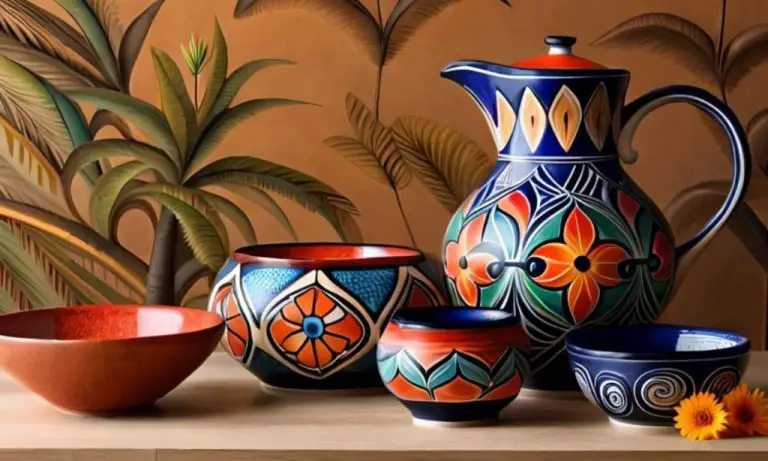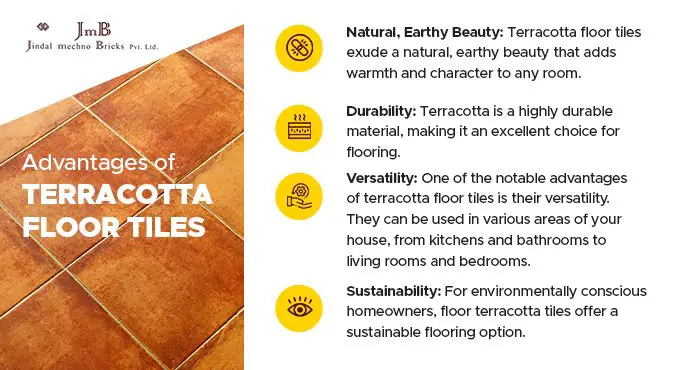What Is The Best Air Dry Clay To Use In Silicone Molds?
Air dry clays are a popular modeling material for crafters and artists. They don’t require baking to harden, instead drying through evaporation. This makes them convenient to work with and ideal for projects with silicone molds. When air dry clay is pushed into a silicone mold, it will form to all the details and textures before drying into a sturdy finished piece.
There are several types of air dry clays, each with their own properties. Factors like flexibility, dry time, smoothness, and durability will impact how the clay performs in molds. Understanding the characteristics of different air dry clays will help determine the best option for your specific molding projects and needs.
Types of Air Dry Clay
There are several main types of air dry clay that are commonly used with silicone molds:
Polymer Clay – Polymer clay contains PVC along with plasticizers that keep it malleable. Popular brands like Sculpey and FIMO don’t require baking, instead they cure and harden at room temperature. Polymer clays like Sculpey III are great for capturing fine details in molds.
Crayola Model Magic – This lightweight, non-toxic air dry clay is made of starch, gypsum and water. It dries to a smooth, matte finish and is flexible when dry. It can capture good detail from molds.
Activa Air-Dry Clay – Activa clay contains cellulose, Plaster of Paris and natural glues. It air dries quickly, doesn’t shrink much and can pick up fine details from molds. Activa Smooth-It has a smooth finish when dry.
Hearty Clay – This pliable, non-toxic clay is made in the USA. It air dries in 24 hours and does not shrink. Hearty Clay can pick up impressions and details well.
Makin’s Clay – Makin’s air dry clay is flexible, lightweight and strong when dry. It dries smooth and is available in white and terra cotta. Makin’s clay can effectively capture mold details.
Properties to Look for
When selecting an air dry clay to use with silicone molds, there are several key properties to consider:
Strength and Durability – The clay must be strong enough when cured to withstand demolding without tearing or cracking. A durable clay that holds its shape well is ideal.
Flexibility – The clay should be flexible when conditioning to push into all areas of an intricate mold, but also firm up adequately when dry. Highly flexible clays may not hold fine details as well.
Drying Time – Faster drying clays allow you to reuse molds quicker. But the clay must remain workable long enough to fully set in the mold.
Finish – Some clays cure very smooth, while others have more texture. Consider the finish needed for your particular project.
Testing different air dry clays with your specific molds will help determine the best fit for your needs in terms of optimal strength, flexibility, drying time, and finish.
Best Air Dry Clay for Fine Detail
When looking to capture intricate designs and fine details in silicone molds, polymer clay and Makins clay are two excellent choices.
Polymer clay, like Sculpey or FIMO, is known for its ability to pick up and hold the finest imprints and etchings from molds. The smooth, pliable texture enables it to press into even shallow grooves and corners without distorting or losing definition. Once cured in a home oven, polymer clay retains crisp edges and precision craftsmanship.
Similarly, Makins clay is formulated to reproduce subtle patterns and small features precisely. It has an ultra-smooth texture that fills every crevice of a mold without excessive cracking or chipping. The flexible properties also allow it to bend and conform as needed when demolding detailed pieces. Makins clay dries hard while maintaining the crisp details captured from the mold.
For artisans and crafters seeking to replicate intricate designs, polymer clay and Makins clay stand out for their ability to capture fine details and deliver finished pieces with exceptional accuracy and clarity.
Best Air Dry Clay for Smooth Finish
When making detailed molds, a smooth finish is essential for capturing fine details and textures. The best air dry clays for getting a smooth, even finish are polymer clays and Activ-Clay.
Polymer clay is made from PVC resin and is known for being exceptionally smooth right out of the package. It has an elastic, doughy texture that makes it easy to condition and achieve a flawless finish. Polymer clay self-levels as it’s worked, filling in any imperfections in the surface. This makes it ideal for capturing intricate designs and textures from molds without visible cracks or unevenness.
Activ-Clay is another top choice when you need an air dry clay that dries smooth. It has a silky texture and easily conforms to molds without sticking. Activ-Clay has minimal shrinkage as it dries, so it retains details nicely. The smooth finish makes it great for molding delicate patterns and sculptures. With a little sanding, Activ-Clay produces a porcelain-like surface that picks up molded textures beautifully.
Best Air Dry Clay for Flexibility
When working with silicone molds, you’ll want to use an air dry clay that remains flexible even after drying. This will allow you to easily remove intricate pieces from the mold without breaking or warping them. Two great options for flexible air dry clay are polymer clay and hearty clay.
Polymer clay is designed to be baked in a conventional or toaster oven to fully harden it. However, it can also be air dried, which leaves it flexible and strong. Polymer clay works beautifully in molds because it won’t shrink or crack as it dries. It will hold the finest details from the mold while still being pliable enough to remove without damage.
Hearty clay is another top choice when flexibility is key. It air dries to a lightweight, bendable texture that won’t become brittle or prone to cracking over time. This makes it easy to demold detailed pieces made with hearty clay without fear of breakage. Its smooth, creamy texture also spreads nicely into every crevice of the mold.
For silicone mold projects requiring both high fidelity to the mold details and flexibility when dry, polymer clay or hearty clay are your best bets. Their compositions make them ideally suited for flexible finished pieces that capture the nuances of the mold perfectly.
Best Air Dry Clay for Fast Drying
When working with silicone molds, you’ll want an air dry clay that dries quickly so you can unmold your creations faster. Two top choices for fast drying air dry clay are:
Crayola Model Magic – This lightweight, non-toxic clay dries completely in 24 hours. It goes on soft and smooth for molding, then hardens into a strong, durable finish. The fine texture and quick drying time make Model Magic ideal for capturing intricate details.
Activa Air-Dry Clay – Formulated to dry quickly at room temperature, Activa clay will be ready for unmolding in 8-12 hours. It has a smooth, pliable texture for sculpting and takes acrylic paints and glazes very well. Activa sets up strong enough for decorative and functional items.
Both Model Magic and Activa clay deliver fast-drying properties perfect for silicone mold work. Their ability to harden rapidly allows you to unmold and reuse molds quicker. When speed is a priority, these are two of the best air dry clays for minimizing wait times.
Best Air Dry Clay for Mold Durability
When working with silicone molds, you’ll want an air dry clay that holds its shape and doesn’t tear or crumble easily when demolding your finished pieces. The clay also needs to be strong enough to withstand multiple castings without deteriorating the mold.
Polymer clay is one of the most durable options for silicone molds. Brands like Sculpey and Fimo cure to a hard, inflexible finish that will release cleanly from molds. The baked polymer clay pieces will be sturdy and retain their shape through repeated castings.
Makins Clay is another top choice when durability is key. This premium air dry clay starts out soft and malleable, yet cures to an incredibly hard, rock-solid state. Pieces made from Makins have exceptional strength and are suitable for applications like jewelry, keepsakes, and decorative accessories. The cured clay won’t crumble or crack even when using a mold repeatedly.
Opting for an air dry clay specifically formulated for strength, like polymer or Makins, ensures your finished pieces will hold up well through demolding and maintain their integrity with multiple castings. This allows you to reuse molds indefinitely without damaging them or sacrificing detail.
Tips for Using Air Dry Clay in Molds
When working with air dry clay in silicone molds, there are some tips to follow for best results:
Condition the clay first by kneading it before pressing it into the mold. This makes the clay smooth and pliable. Knead for 5-10 minutes until the clay is soft and free of lumps.
Use a releasing agent like talcum powder or cornstarch inside the mold so the clay doesn’t stick. Tap the excess powder out before pressing in the clay.
Avoid overhanging clay in deep molds which can slump or tear off. Press the clay in gradually in layers instead.
Let the clay dry fully as per package instructions before removing from the mold. Drying usually takes 24-48 hours.
Optional but recommended – Bake the dried clay pieces at 275°F for 30 minutes to harden and strengthen them before painting or glazing.
Use acrylic paints which bond best with air dry clay. Watercolors may rehydrate the clay. Seal painted pieces with varnish.
Work carefully when releasing dried clay from the mold. Lever it out gently to avoid breaking thinner or delicate pieces.
Recommended Air Dry Clays for Molds
Based on the criteria above, here are some top recommended air dry clays for use in silicone molds:
Apoxie Sculpt
Apoxie Sculpt is one of the best all-around air dry clays for silicone molds. It has excellent fine detail capabilities, smooths to a polished finish, has good flexibility when set, dries reasonably fast, and won’t degrade silicone molds. The only downside is it’s more expensive than other clays.
Original Sculpey
Original Sculpey is another great choice that performs well in all categories. It captures fine details, can be sanded and polished to a smooth finish, has decent flexibility, dries fairly quickly, and won’t harm silicone. It’s also very affordable.
Premo Sculpey
For a premium clay at a moderate price point, Premo Sculpey excels in all the key criteria. It picks up fine details, dries to a smooth polished finish, has good strength and flexibility, dries faster than Original Sculpey, and won’t degrade molds.





